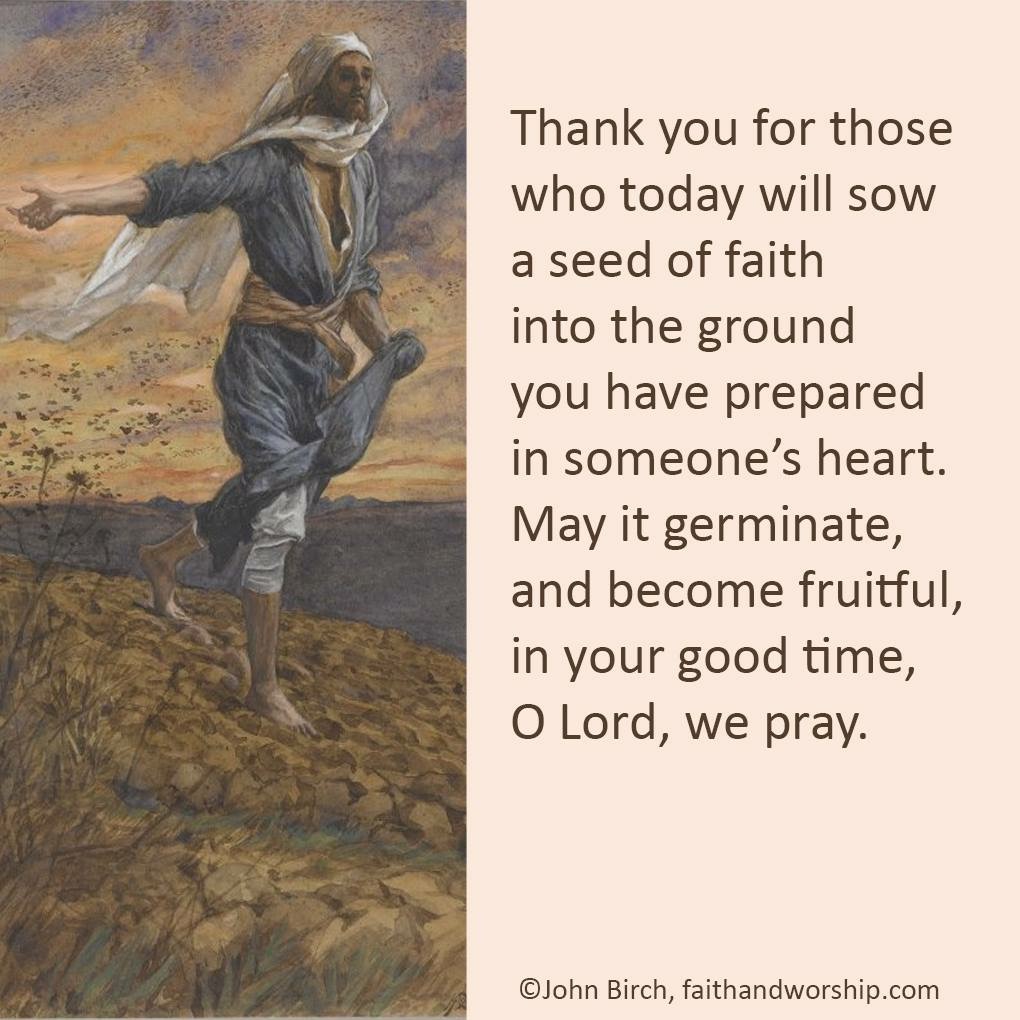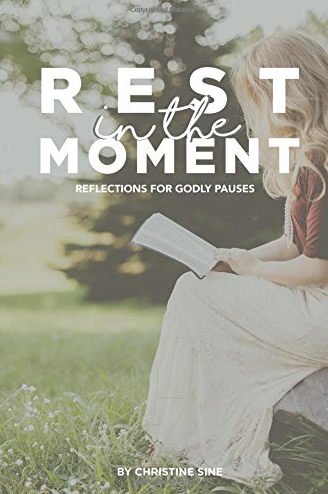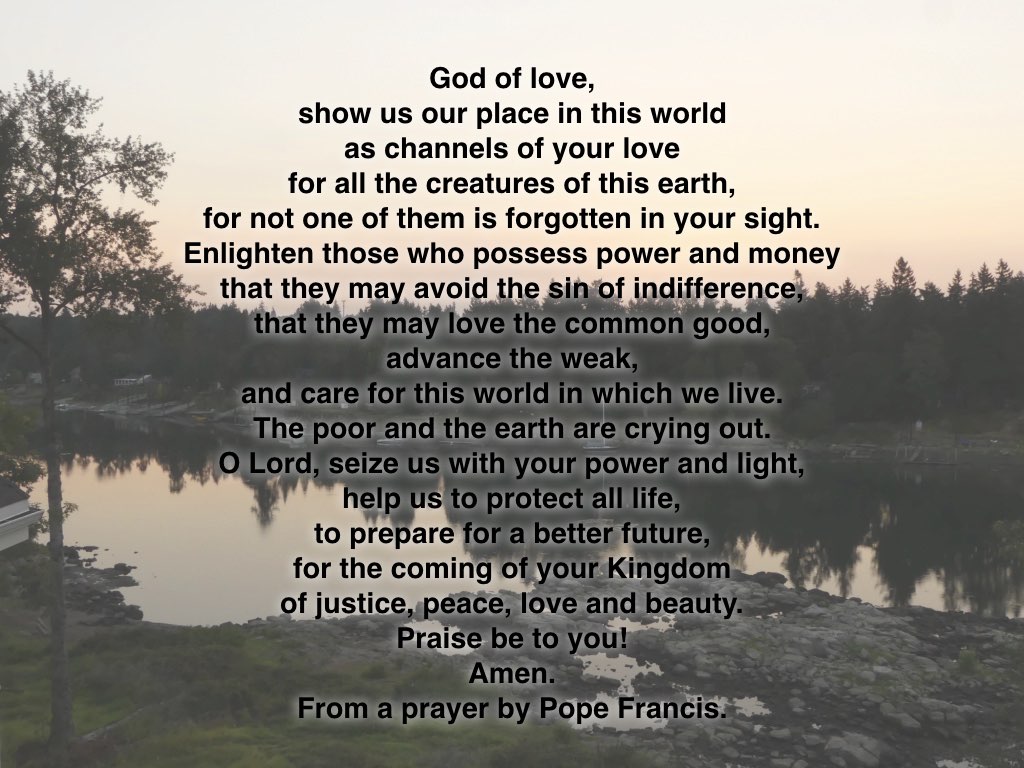Where I live in Northern California fall brings warm weather and sunny days. The summertime fog disappears for a few months and we can finally shed our sweaters and jackets. It’s a perfect time for picnics and walks. Sadly, it’s also fire season. This week I watched in horror as fire consumed many homes and businesses in the Wine Country, about an hour away from me. Friends and relatives had to evacuate their homes. Many are still waiting for news about whether their homes survived. The fires still are not contained. I find myself in continual prayer for them.
Even though fire seems to be a constant threat in our area, it’s hard to believe that this level of destruction happened so quickly. It makes me realize that all of life is so fleeting, so impermanent. I look around my house at all my possessions, gathered over a lifetime–some passed down from my parents and grandparents–and I know that it could happen to me too. It could all disappear in a moment. This fire happened so fast that many people had no time to grab their belongings. They had to run for their lives.
I wonder in the wake of this tragedy: Do I have a right relationship with material things? Am I, like the rich young ruler, too attached to my possessions? How much time do I spend maintaining my house and my car versus investing in people or cultivating time with God? I’m especially aware of these questions as the Christmas season approaches. How do I balance the emphasis on material things with spiritual matters? I believe God wants us to wrestle with these questions. Sometimes these questions can be uncomfortable.
Another response to the fire that is a bit easier is to give thanks for the ways that God sustains life. I find hope in some of the amazing displays of nature around me that have survived for millennia. Just a couple of weeks ago my husband and I joined some friends to hike in a cool Redwood grove in the Oakland hills. Unbelievably, these trees have stood for hundreds of years, through changing seasons, the development of nearby cities, and even the fire that destroyed much of Oakland in 1991. The trees are majestic, as they grow to tremendous heights to reach the light. Some people compare these groves to a church cathedral and the connection is easy to see. The trees are like spires and the forest below is quiet and dark. I have the impression that if someone dropped something on the soft forest floor it wouldn’t make a sound.
I found myself in awe of that forest, of the improbability of such fierce survival and beauty. I wasn’t just impressed by the trees. It was also in the smallest forest dwellers. At one point we came to an area filled with thousands, maybe millions of ladybugs. They were piled on each other in large clumps along a fence rail and several trees. They migrate here every year between October and April. The cool forest provides the perfect place for them to eat aphids and conserve energy during the winter. I know that image of those teeming ladybugs will stay with me in those moments when I doubt God’s provision.
I know too that if I believe in a God who cares for ladybugs I must believe all the more in a God who cares for people. I pray that even in this horrible fire, those who lost so much will find a God who cares about them and will help them rebuild their lives.
As I look out my window today, heavy smoke obscures my view of the nearby hills. Even though I live an hour away from the fire, the smoke and smell of ash penetrate the air. Am I called to do more than meditate and pray? What actions am I being called to on a daily level? Who will come across my path today that needs love and compassion? My heart feels more open. It may not be a fire victim, but maybe my friend whose daughter has cancer or the lonely woman at church. Or maybe I am supposed to respond directly. I was touched that a friend of mine who lives two hours away in Sacramento offered up her house as shelter for those who had lost their homes. Even though she lives so far away she wanted to help.
We live in precarious times full of much tragedy, both natural and human. Yet we also are witnesses to great love in the midst of tragedy. This is a great paradox that gives me hope. Given the state of our world, the pace of tragedy won’t ease up anytime soon. Yet God’s sustaining care is ever evident. The ability He gives us to help one another through a crisis is remarkable. Last week, in the aftermath of the Las Vegas shooting, I was amazed to hear of the lines of people circling the block to give blood.
I think again about the ladybugs. To survive the winter, they mass together in big clumps. This provides protection and warmth. We are not so different. We were created to be in community and dependent on one another. Sometimes we live like we don’t need each other or God. We can for a short time—but these disasters show us we need each other.
Prayer:
God have mercy on those who lost loved ones and homes to fire.
I mourn for the destruction of precious people and possessions.
May you restore and rebuild what was lost.
May you protect the vulnerable.
May you stir our hearts to love our neighbors, close and far.
May you keep our hearts focused on what is important in your eyes.
Thank you for your steadfast love and provision through the ages.
Thank you for giving us community in hard times.
Matthew 26:11 “For you always have the poor with you” ESV
Thirty years ago to the day a call to action was raised to recognise the plight of the world’s poor and the dispossessed. This call was raised by Fr Joseph Wresinski and the text is immortalised on a stone at the Trocadero Human Rights Plaza in Paris.
“On this day, defenders of human and civil rights from every continent gathered here. They paid homage to the victims of hunger, ignorance and violence. They affirmed their conviction that human misery is not inevitable. They pledged their solidarity with all people who, throughout the world, strive to eradicate extreme poverty.
Wherever men and women are condemned to live in extreme poverty, human rights are violated. To come together to ensure that these rights be respected is our solemn duty”.
Poverty has always been a major problem. Throughout history the world has been a case of the haves and have-nots, the rich and the poor, and never has the gulf been as wide as it is today. In an age where food and shelter is plentiful the fact that poverty is on the increase should be raising alarm bells world-wide, there is something seriously wrong here.
The international day for the Eradication of Poverty is intended to promote dialogue and understanding in communities and encourage a cooperative stance in helping people lift themselves out of poverty with dignity and free from shame. It is designed to help find ways to close the gap between the wealthy and the poor, and there are plenty of organisations across the globe trying to do it.
One of the problems we face in our ‘civilised’ world is that we view poverty as something that happens in other countries like Africa, Asia and Eastern Europe, there can’t possibly be starving children and desperate people in the UK, USA!! Can there??
Sadly the answer is yes, the poor are right under our noses and won’t go away with wishful thinking no matter how inconvenient or uncomfortable it may be. We must never forget the poor, as Jesus himself reminds us, they are always with us (see quote above from Matthew 26).
God’s heart is with the poor as told in Psalm 113 “He raises the poor from the dust and lifts the needy from the ash heap, to make them sit with princes, with the princes of his people”. Psalm 113 ESV. This Psalm makes it abundantly clear of God’s position on the plight of the poor so why do so many of us not see it ourselves?
I remember my first introduction to extreme poverty with the global event that was Live Aid, as a radical teenager I was determined to help in any way I could and to my joy I found others doing the same thing and off we went to try and raise awareness and money in our own small ways. We should all be doing this, we should all be radical with our efforts to help the poor. It starts with the recognition that the poor are on our own doorsteps, children are starving in our inner cities, families are homeless and desperate while the governments who are in office to serve them choose to give tax breaks to the wealthy. The churches seem to be largely inactive and self-serving as money is spent on fancy sound and media equipment rather than helping those in need. One local church I know of decided the best way to clear their consciences was to exclude the poor altogether; ‘separating the wheat from the chaff’ (the Vicar’s words) they called it. Some good initiatives have been begun in the Body of Christ, such as CAP (Christians Against Poverty) and the many Christian aid agencies, like CAFOD and Christian Aid, and the wonderful work of the Salvation Army. We need to keep these organisations thriving and well-staffed.
Whilst it can be helpful, the world’s poverty stricken are not always on the lookout for a handout, help can come in many forms. Coming along-side, debt counselling, money management training, job clubs and in places like Africa the farming cooperative schemes, seed sharing etc. Teach a man to fish and he will eat for a lifetime, as the saying goes.
As God’s passion is for the poor, so must ours be, for as the word says:
Luke 4:18 “The Spirit of the Lord is upon me, because he has anointed me to proclaim good news to the poor”.
Luke 6:20 “Blessed are you who are poor, for yours is the kingdom of God”
As Jesus told the rich young man in Luke 18:22 “One thing you still lack. Sell all that you have and distribute to the poor, and you will have treasure in heaven; and come, follow me.” He does not say come and follow me and then help the poor, he challenges the man to put the poor before himself, sadly it is something he can’t and won’t do. Many of us are like this in the world and in the church. For God has blessed us with the main tool to be used to saving the poor… us! God doesn’t need to come down from heaven and save everyone in one fell swoop for he has sent us to do it for him and it is our honour, blessing and duty to fulfil his word and command.
The call for action on this day is the starting point, a springboard for each of us to bless others and ourselves with our love and aid to the less fortunate and the dispossessed. Our time and efforts are as valuable as our coin and we must sweep away the trappings that entomb us in the whited sepulchres some churches are becoming. Pray for guidance, look to your heart to see where your skills can be used and if you are fortunate to be wealthy then give abundantly as God gave abundantly to you.
There are no excuses in these times, no child should go hungry, no pensioner should be cold, no mother should miscarry in a dark alley, no man should seek respite in a bottle.
Remember the poor, keep them in your prayers.
by Christine Sine
When was the last time that you got goosebumps from a sermon or left church saying Wow that was quite a revelation? That was how I felt on Sunday when Cherry Hairsten preached on Matthew 22:1-14. This is one of those parables I have always struggled with and as Cherry spoke I realized why. I like so many of us have always interpreted it from the perspective of the rich and powerful.
Most translations start with The kingdom of heaven is like…. and then go on to tell the story of a king who doesn’t seem like a very nice person. First he sends out slaves, and I cannot imagine the God Jesus talks about having slaves. in his kingdom there are only sons and daughters. All stand on an equal footing.
Then this king invites people who obviously resent him and don’t want to participate, to a banquet. When he tries to force them to attend they kill his slaves and the king retaliates with violence. Not an image of the God and peaceable kingdom Jesus seems to represent. Then the king of the parable sends his slaves out to to the streets to get people to come. Perhaps as Cherry pointed out, he isn’t so interested in who attends as in how many. Maybe this is not an invitation but coercion because a full banquet hall makes him look good, powerful, in control.
The final blow is when one of the guests doesn’t wear wedding clothes. Puzzling to us, after all someone dragged in from the streets would be dressed in ordinary everyday attire. But to Jesus audience this is very explicit. In his day wedding hosts provided tunics that guests put on over their street clothes before entering the feast. This guest chose not to participate in the king’s system. His refusal to don the wedding tunic was a non violent way to stand against the injustice and violence of the system he was a part of.
In the New Revised Standard Version, which Cherry preached from, it says the kingdom of heaven may be compared to…. In other words, in our comparison God’s peaceable kingdom looks very different from this world’s violent and unjust kingdoms where power and violence dominate.
Drawing on the work of René Girard, Cherry contended that this man, not the king, is the Godly Christ figure. He is the innocent victim of injustice and violence who is mistreated and thrown out because he lived by other principles. Jesus also took our suffering upon himself to show us there is a better way to live and celebrate. This interpretation is Jesus calls us again and again to a come as you are party. Lepers, tax collectors, prostitutes, men, women, children, rich and poor, Jew and Gentile, all those excluded from society’s party are invited and welcomed to the banquet feast of God’s peaceable kingdom. They don’t need to don special clothes. They don’t need to bow down to his power or be afraid. The kingdom of God does not meet violence with violence like the Roman empire and all powerful worldly kingdoms tend to do. It does not coerce and it does not exclude. In fact it gives priority to the marginalized, to the poor and the despised.
This interpretation reminds me of Ched Myers interpretation of The Parable of the Talents, which I have long held to be a better interpretation. Here the third slave who resists the powerful landlord is the Christ figure, thrown out because of his refusal to add to the landowner’s wealth. You can read the full article here.
What Is Your Response?
I cannot help but think of this as I watch the rich get richer and the poor get poorer, often as a direct result of actions of the rich and powerful. If we really believe in an upside down kingdom where the Jesus the servant is king of all and our central calling is to feed the hungry, clothe the naked and stand up for injustice, I wonder how seriously we take the challenge to resist with him, running the risk to be thrown out with him. As I commented in a previous post:
How we interpret what the Bible says depends on who we stand with. Perhaps that is part of the reason Jesus encourages us to identify with the poor because when we do we really see his perspective not just on wealth but on life. Blessed are you who are poor for yours is the kingdom of God the Beatitudes tell us (Luke 6:20 NIV). Perhaps that is because only the poor really see the values and priorities of God’s kingdom. We need to see from the perspective of the poor (and the excluded) in order to really understand what God wants to say. Unfortunately so much of what we interpret about money in the Bible tends to be from the perspective of the wealthy. And we want to believe it because consciously or unconsciously we hope that one day we too will be wealthy.
What do you think?
 By Lilly Lewin
By Lilly Lewin
This week I’ve spent a lot of time at the hospital with a friend who is sick. I’ve been making pilgrimages through the maze of the hospital down to the coffee shop called Au Bon Pain for sustenance and coffee. Thankfully even the decaf is good there! But I discovered the disheartening fact that the holiday cups are already out! It’s mid October! And in Nashville it’s still warm! So it’s not even feeling like fall, much less Christmas! I’m not sure how you guys in Australia and Southern California do it with warm holidays. I prefer cold weather most of the time, but especially for the holiday season. I also noticed that Christmas lights and decorations are creeping into the stores, especially the craft stores so I guess I shouldn’t be surprised that coffee shops are ready for the season. But i’m just not feeling it. Christine Sine reminded me that our theme for the next couple of months is “Joy to the World.” I have to admit, that the brightly decorated coffee cup does bring a smile and it’s encouraged me to consider just what is in my cup today? And realize that I need to pour out a lot of stuff that is keeping me from experiencing Joy. What about you? What’s in your cup?
Grab a favorite cup. Or you might go on a mission to find a cup that will make you smile and bring you joy just look at it or just to hold it in your hand.
Hold that cup in your hands. Feel the texture of the vessel. What are the things you like about this cup?
Consider the cup as your life. (if you’ve not read Joyce Rupp’s Cup of Our Life check it out)
What is your cup filled with today?
Honestly, my cup this week has been filled with worry for my friends in Northern California who are dealing with overwhelming wildfires. Many have had to evacuate and some have lost everything. I lived in Napa Valley for four years so I know exactly where these fires are burning and all the beauty the fires are destroying. My cup is filled with grief for the loss of lives, homes, livilhoods, and for the beauty.
As you hold your cup, Talk to God about what is in it today….
Allow the Holy Spirit to show you. What are the fears, worries, problems that may be floating in or filling up your cup? Name them out loud.
You can even fill your cup with liquid to symbolize those things, or write them on small pieces of paper and put them in the cup.
Give these things to God.
If you’ve chosen to put liquid in your cup, go to the sink and pour it out. Or symbolically turn your cup up and pour out the things that are there. Giving them to God.
Hold your cup again. What are things you’d like to be in your cup today?
What would you like your cup filled with? What things do you need in your cup today? Talk to Jesus about this!
Jesus, I’d like my cup to be filled with Joy!
Jesus, I’d like you to fill my cup with your love.
Jesus, I need you to fill my cup with hope even in the midst of the craziness and uncertainty around me.
Jesus, Remind me of this cup of love when I get scared, frustrated and confused.
Help me to know that you are holding me just like I am holding this cup. Thank you for filling my cup daily with good things.
AMEN
Keep that cup near you in the days and weeks ahead to be a symbol of God’s love, joy and hope! Allow the cup to remind you of what you need it to be filled with. You can write down what you need in your cup and put it in the cup as a physical reminder too. Or draw a picture or take a picture of the cup as a reminder. And when you feel your cup being filled with fear, anxiety, bitterness, etc. Go to the sink and pour it out! And Ask God for a better refill!

A prayer from John Birch —
 The twelve meditations in this beautiful full color book are designed to provide moments of refreshment throughout the day or week. The blending together of prayers, reflections, questions and photos invite us to pause, reset and refresh ourselves. Rest is such an important part of the rhythm of our lives, not just a weekly rest of Sabbath, but pauses of rest throughout the day to reset our focus and renew our connections to God. Even my fitbit tells me that I should relax for 2-3 minutes at regular intervals. We all need times when we pause for refreshment and renewal. Just as the night calls us to rest after a busy day and the winter calls us to rest after busy seasons of planting growth and harvest, so too does God beckon us to rest after hours of busy work.
The twelve meditations in this beautiful full color book are designed to provide moments of refreshment throughout the day or week. The blending together of prayers, reflections, questions and photos invite us to pause, reset and refresh ourselves. Rest is such an important part of the rhythm of our lives, not just a weekly rest of Sabbath, but pauses of rest throughout the day to reset our focus and renew our connections to God. Even my fitbit tells me that I should relax for 2-3 minutes at regular intervals. We all need times when we pause for refreshment and renewal. Just as the night calls us to rest after a busy day and the winter calls us to rest after busy seasons of planting growth and harvest, so too does God beckon us to rest after hours of busy work.
You can also find the hard copy of the book here for $19.99 and other great books in our online shop.
Canada celebrated thanksgiving this past October 9. Kathie Hempel wrote a great article —
Growing up in Southern Ontario, close to the American border where Romper Room and Ding Dong School were the Sesame Street of the 1950’s, images of Thanksgiving were typically those associated with the United States’ November Thanksgiving.
Pilgrims at Plymouth Rock meeting with the native North American Indians, multi-colored corn, chiefs with large colorful headdresses, women in aprons and bonnets and men in their tall hats and buckled shoes were the only images I had of the earliest of Thanksgiving.
Imagine my surprise when I found out that so much about those images were wrong. The pilgrim women also were known to wear the tall caps, known as capotains, with nary a buckle to be seen. They too expensive and so leather ties were used to hold up britches, tie shoes and decorate and fit the tall hats. They also did not only wear the somber black and white clothing. Actually; the early Pilgrims wore the many colors of the day created by natural dyes.
So, if that wasn’t true…
As humans, we love story and often get creative with the truth. How we see any experience or issue depends on the lens we use to view our world. When we zoom to focus only on what we want the message of our story to be, we can miss details that can enhance our understanding of the truth.
The first Thanksgiving recorded in North America was celebrated in Canada when Martin Frobisher, an explorer from England, arrived in Newfoundland in 1578. Long before Europeans settled in North America, festivals of thanks and celebrations of harvest took place in Europe in the month of October. Thus, the difference in the second Monday in October celebrations in Canada and the fourth Thursday of November festivities in the United States.
I now live in Michigan. Those pictures of what Americans commonly call the “First Thanksgiving” was celebrated by the Pilgrims after their first harvest in the New World in October 1621. Historians; however, the earliest celebrations in the then US territory of Virginia are recorded as far back as 1607. The celebration then moved into December and several other months and days before the fourth Thursday November became the designated holiday here December 26, 1941 by an act of Congress.
While the story of Thanksgiving can vary, the heart of Thanksgiving is what is truly compelling. We read in Philippians 4: 6-7 the spirit of Thanksgiving whatever the day or month: Do not be anxious about anything, but in every situation, by prayer and petition, with thanksgiving, present your requests to God. And the peace of God, which transcends all understanding, will guard your hearts and your minds in Christ Jesus.
I remember the first time I met my three brothers and three sisters in September 1996. During the drive to see them, I asked God to let me remember every ray of sunlight, every silky cornstalk, every tree beginning to show exquisite color. Life had been difficult and I had begun practicing gratitude in just that way.
When I struggled to find anything to be grateful for, I would focus on one tree. If I could be grateful for one tree, I could be grateful for all trees. As my gratitude grew, I widened the lens to include one person and all people, one experience and all experiences.
I came to understand that faith is gratitude expressed. Faith to me is the arms wide-open receiving of God’s tremendous grace and mercy in our lives, given to those who will accept it. Thanksgiving is my celebration of that; trumpets blaring, feast set out, family gathered, and even the extra pounds accumulated when you celebrate two Thanksgivings each year.
No matter the country, no matter the language, no matter the day; our Thanksgiving reflects the state of our hearts.
Give thanks to the LORD, for he is good; his love endures forever. 1 Chronicles 16:34
As an Amazon Associate, I receive a small amount for purchases made through appropriate links.
Thank you for supporting Godspace in this way.
When referencing or quoting Godspace Light, please be sure to include the Author (Christine Sine unless otherwise noted), the Title of the article or resource, the Source link where appropriate, and ©Godspacelight.com. Thank you!





